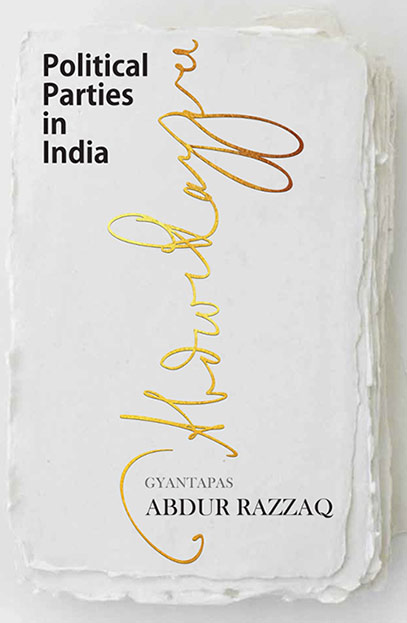- Shop
- Political Parties in India
Political Parties in India
https://uplbooks.com/shop/9789845063814-political-parties-in-india-8422 https://uplbooks.com/web/image/product.template/8422/image_1920?unique=3d813f3
| Language: English |
Tags :
Book Info
The title of the project, ''Political Parties in India'', is a bit limiting. While it may have been the early focus of the exercise, it eventually evolved into an exploration in social, economic and intellectual history of 19th and early 20th century India that went far beyond its original intent. In this study he explores the changes in class formations under British rule in India, investigates the spread of “modern” (particularly English) education and the new discourses it generated, and examines the increasing Indian presence in the bureaucracy, military as well as the Central and Provincial legislatures, that led to new opportunities and demands expressed in the lively media environment that had come into existence. He suggests that the political movements and organizations that were vague and inchoate in the beginning gradually became more formalized and animated later, and opines that political parties did not drive these popular movements but were actually shaped by them. He also discusses the increasing “distancing” between the Hindu and Muslim communities in the context of the competition among the educated middle classes for political and economic advancement that had far-reaching consequences later. It provides an informed and engaging review of that period – comprehensive in scope, shrewd in observation, rich in insight, unconventional in analysis, and astute in judgment. We are thrilled in being able to finally present this long-awaited publication to the public.

Gyantapas Abdur Razzaq
Professor Abdur Razzaq was a legendary scholar, a nurturing mentor and a distinctive and inspiring presence in the intellectual and cultural landscape of the country for many decades. He was also deeply respected for his graciousness, humility, integrity and his infectious laughter, as well as his abiding faith in critical thinking, moral clarity and intellectual excellence. He has left behind many students and admirers who remember him with reverence, gratitude and pleasure. He joined Dhaka University as a Lecturer in 1936, and went to pursue his Ph.D. at the London School of Economics in 1945 under the supervision of the world-renowned scholar Prof. Harold Laski. He was close to finishing his dissertation when Laski died on March 24,



